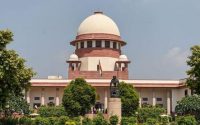$100 Website Offer
Get your personal website + domain for just $100.
Limited Time Offer!
Claim Your Website NowProfessor leading home ministry’s ‘radicalisation’ study insists it’ll be faith-neutral
Source:-https://theprint.in
New Delhi: For the first time, the Union Ministry of Home Affairs has approved a study on the “status of radicalisation” in India.
The study, which aims to provide a legal definition of radicalisation and suggest amendments to the Unlawful Activities Prevention Act (UAPA), will be a year-long project led by Prof. G.S. Bajpai, Director of the Centre for Criminology and Victimology, at National Law University (NLU), Delhi.
Speaking to ThePrint, Prof. Bajpai sought to address concerns — voiced by some opposition leaders on prime-time debates and also raised by some analysts — that the study will focus on a certain religion. Bajpai said the study is a “faith-neutral” exercise and dismissed the “baseless apprehensions” surrounding it.
“Radicalisation is not confined to any ideology, group or religion. It is a reality that can happen to anyone irrespective of their faith. Such instances across the board, what their drivers and their push-and-pull factors are is what we are researching,” he said.
The study stems from a 2018 invitation sent by the home ministry’s police think-tank, Bureau of Police Research and Development (BPR&D), to academicians and legal experts, seeking research proposals. Of the subjects proposed, two were shortlisted in September — “Status of Radicalisation in India: An Exploratory Study of Prevention and Remedies” and “Functioning and Impact of Open Prisons on Rehabilitation of Prisoners”..
Bajpai said he has been pursuing studies on radicalisation for the past year and a half, adding that it is his strong belief that this venture is not political commentary, but scientific research.
“Our study has a decided format where such baseless apprehensions have no space. The idea is to bring the reality to the public. Discovering facts is the religion of a researcher,” he said.
Bajpai — also a member-secretary of the Committee on Criminal Reforms constituted by the home ministry this year to review criminal laws and rid the Indian Penal Code (IPC) of problematic colonial-era elements — said such a study is the need of the hour.
“The requirement emanates from the fact that we lack an empirical basis of radicalisation. Mostly, people have opinions or assumptions. There is definitely a need to discard wrong impressions and need to have more factual and hard data-based information,” he said.
The study, he added, will focus on three states — Assam, Maharashtra and Kerala — and the union territory of Jammu & Kashmir. He said the four areas have been identified because they account for many radicalisation-related cases in data collected by police and the National Investigation Agency (NIA), which will serve as the primary information pool for the team.
Having identified states that have the “likelihood” of instances of radicalisation, Bajpai said he aims to use the information gathered as sample data that can then be applied to other states across the country.
Some analysts in the field, however, are wary of the study.
“The scope of the study is limited because it’s only looking at four states (sic) and only looking at one kind of radicalism — Indians who have gone and joined ISIS and Jaish-e-Mohammed. In the past 5-6 years, only about 170 Indians have gone and joined such organisations,” said Maya Mirchandani, senior fellow at the think-tank Observer Research Foundation, who is involved in research on ‘Preventing and Countering Violent Extremism’.
“Global conversations are looking at white supremacy and Right-wing radicalism — are we willing to look at that?” she added.
Mirchandani said she “would welcome a study of the drivers of radicalisation in India in an absolutely neutral manner”.
“This means that while you can look at jihad and ISIS-related radicalisation, you need to open up and look at Right-wing, majoritarian radical violent actors across the country irrespective of their religion,” she said.



